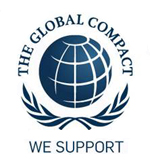Pirelli's model
"Sustainability is a fundamental choice for Pirelli, it is fully integrated into the Group's Vision and Strategies for growth, in all business areas and in all management decisions, everywhere in the world.".
Marco Tronchetti Provera - Executive Vice Chairman

The Pirelli Sustainability Model is inspired by the United Nations Global Compact, of which Pirelli has been an active member since 2004 (Letter of Commitment signed by the CEO), by the Stakeholder Engagement Principles set out in AA1000 and by the ISO 26000 guidelines. The compliance of the Pirelli Sustainability Model with ISO 26000 Guidelines is yearly attested by third party.
Pirelli’s Responsible management runs through the entire value chain. Every operating unit integrates economic, social and environmental responsibility in its own activity, while cooperating constantly with other units and with stakeholders; this allows the Group to effectively manage risks and opportunities related to its processes, products and services, with a constant focus on innovation and with the awareness of the role of a multinational group in a global context.
Pirelli Group adopts a "multi-stakeholder" approach, it in fact pursues sustainable and steady growth, the latter being as much as possible based on a fair balance between the different expectations of all those who interact with the Company. The interactions with stakeholder are based on proactive dialogue aimed at confronting and collecting their expectations in order for Pirelli to create shared growth.
The main management systems adopted by Pirelli follow internationally recognized standards and include ISO 9001, IATF 16949, ISO/IEC 17025 in terms of Quality Management, SA8000® for the management of Social Responsibility at its subsidiaries and along the supply chain, ISO 45001 for the management of Occupational Health and Safety, ISO 14001 for environmental management and ISO 37001 on anti-corruption measures. The Company is also inspired by ISO14064 for the quantification and reporting of greenhouse gas emissions (GHG), and by the ISO 14040 family rules for the methodology for calculating the environmental footprint of the product and the Organization and specifically, ISO 14067 and ISO 14046 for the determination of Carbon Footprint and Water Footprint. In December 2021, the Company also renewed its independent certification (from SGS Italia S.p.A.) regarding the compliance of its Sustainable Purchasing Management model based on the ISO 20400 Standard (obtained during 2018).
Pirelli has formalized its positioning on Environmental, Social and Business Ethics key topics in a number of Policies, including:
The Values and Ethical CodeSocial Responsibility Policy for Occupational Health, Safety and Rights, and Environment,
Global Human Rights Policy
Health, Safety and Environment Policy
Diversity, Equity & Inclusion
Product Stewardship Policy
Quality Policy
Green Sourcing Policy
Supplier Code of Conduct
Sustainable Natural Rubber Policy
Code of Conduct
Anti-Corruption Program
Global Antitrust and Fair Competition Policy
Antitrust Program (pirelli.com)
Corporate Lobbying Policy
Global Tax Policy
Global Personal Data Protection Policy
Intellectual Property Policy (pirelli.com)
Social Media Policy
Whistleblowing Policy
On March 6, 2024, Pirelli published the update of the Business Plan to 2024-2025 and its sustainability strategy to 2025, 2030 and 2040, taking into consideration the economic and socio-environmental materiality of the Company in accordance with the United Nations Sustainable Development Goals (SDGs).
Pirelli's sustainable performance and its new challenges are reported to Stakeholders every year via the Group Annual Integrated Report, prepared in accordance to the main international sustainability reporting frameworks and certified by third party.












